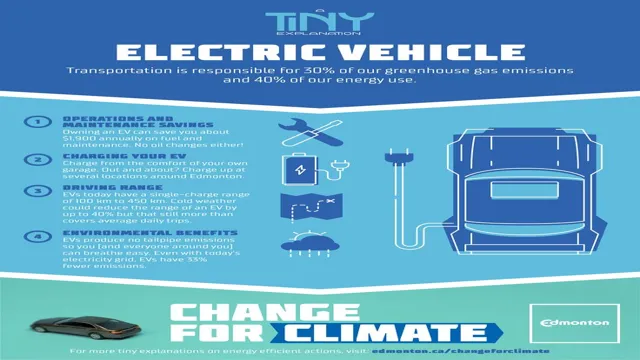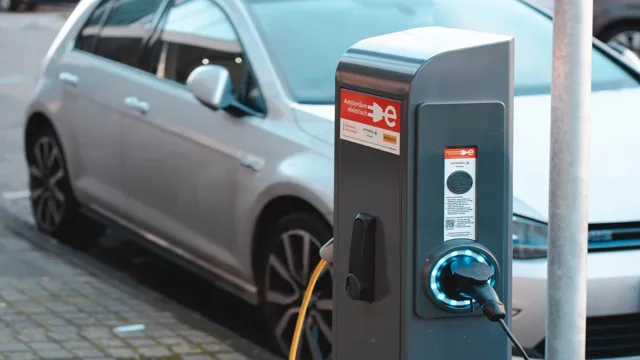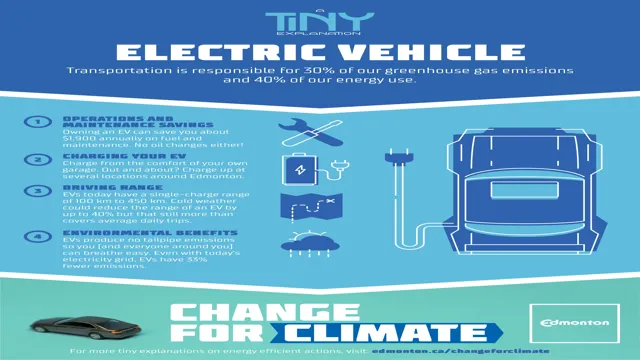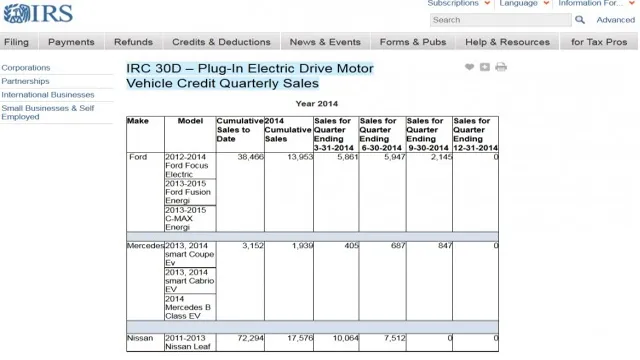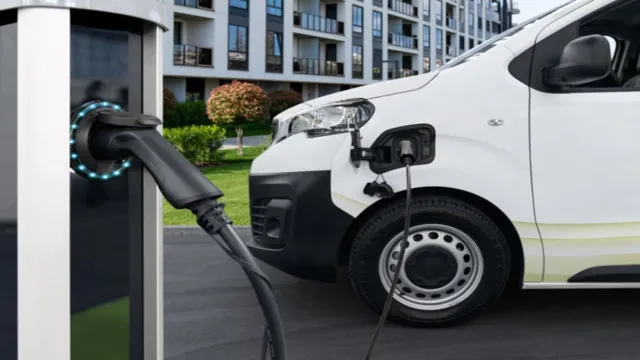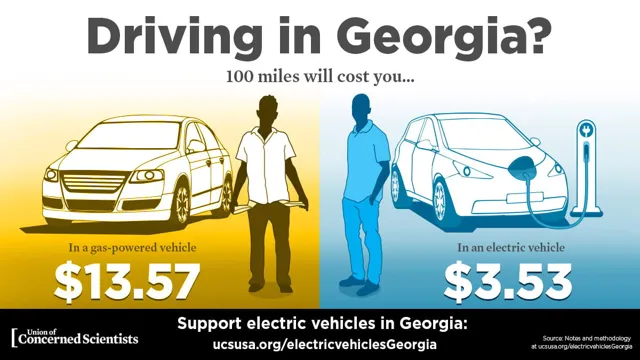The Top Environmental and Economic Benefits of Going Electric: A Global Perspective on Electric Cars
Electric cars have become increasingly popular in recent years, and it’s no wonder why. These eco-friendly vehicles offer a wide range of benefits that make them a compelling option for anyone looking to buy a new car. From lower operating costs to reduced carbon emissions, electric cars are changing the game in the automotive industry.
For starters, electric cars are much cheaper to operate than their traditional gasoline counterparts. Since they run on electricity rather than gas, you’ll save a ton of money on fuel costs over the lifetime of the vehicle. Additionally, electric cars require less maintenance and repairs than gas-powered vehicles, saving you even more money in the long run.
But the benefits don’t stop there. By driving an electric car, you’ll also be doing your part to help the environment. Compared to gas-powered cars, electric vehicles produce fewer greenhouse gas emissions, reducing your carbon footprint and helping to combat climate change.
Furthermore, electric cars are incredibly convenient. You can charge them up at home overnight, eliminating the need to make frequent trips to the gas station. Plus, many newer electric cars have a longer range than before making long road trips more accessible.
Another advantage of electric cars is their quiet and smooth operation. Unlike traditional cars, which produce loud engine noises and vibrations, electric cars are virtually silent and offer a smooth ride. This makes them an ideal choice for city driving.
All in all, the benefits of owning an electric car are undeniable. Not only do they save you money on fuel and repairs, but they’re also eco-friendly, convenient, and offer a comfortable ride. No wonder they’re becoming an increasingly popular choice for drivers everywhere.
Environmental Impact
Electric cars are environmentally friendly vehicles that offer a world of benefits to the environment. By driving an electric car, individuals can significantly reduce their carbon footprint, as electric cars emit zero harmful pollutants that affect our ecosystems and air quality. In addition, electric cars are much quieter than traditional cars, which can limit noise pollution and provide a more peaceful environment for wildlife and humans alike.
By shifting to electric cars, we can also reduce our dependence on non-renewable fossil fuels, which can help preserve our planet’s finite natural resources. Overall, electric cars are a cost-effective, safer, and cleaner mode of transportation, having a positive impact on our environment. By choosing an electric vehicle, we can do our part in mitigating climate change and creating a more sustainable future for our planet and future generations.
Reduction of CO2 Emissions
The reduction of CO2 emissions has become a pressing issue for our environment. The excessive production of CO2 has devastating impacts on our planet such as dirty air, rising sea levels, and global warming. Industries, transportation, and agriculture activities are some of the major contributors to CO2 emissions.
Therefore, governments and organizations are now taking measures to reduce their carbon footprint in an attempt to decrease the amount of CO2 released into the atmosphere. This includes the implementation of renewable energy sources, electric vehicles, and the adoption of sustainable practices in industries. By taking these positive steps, we can limit the amount of CO2 in existence and help protect our planet for future generations.
It’s important to remember that even the smallest actions can make a significant impact on the environment. So, let’s take responsibility for our actions and act now before it’s too late.
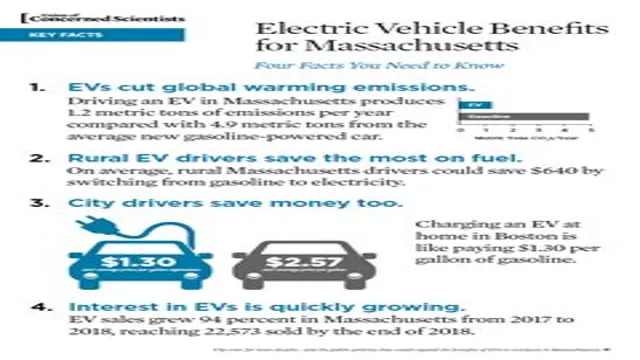
Less Noise Pollution
When we talk about the environmental impact of reducing noise pollution, there are multiple points to consider. One of the most significant effects of noise pollution is on human health. Urban areas, factories, construction sites, and traffic are some of the leading contributors to noise pollution.
Loud noise can cause hearing problems, sleep disorders, and stress. It can also lead to high blood pressure and heart disease. Moreover, noise pollution can harm wildlife and makes it difficult for them to hunt, communicate, or mate.
Reducing noise pollution can help in preserving the natural habitat, promoting biodiversity, and maintaining ecological balance- we need to keep our ecosystems healthy and in order. By using quieter machines, designing buildings to better absorb sound, and implementing smart policies, we can reduce the environmental impact of noise pollution and improve our health and wellbeing.
Financial Savings
One of the biggest financial benefits of electric cars is their significantly lower operating costs compared to gas-powered vehicles. While the upfront cost of an electric car may be higher, in the long run, electric car owners save money on fuel, maintenance, and repairs. Since electric cars run on electricity, they require much less maintenance than traditional cars, which rely on oil changes, belt replacements, and other routine maintenance that can add up over time.
Additionally, electric cars have fewer complex moving parts than traditional vehicles, reducing the likelihood of a breakdown and the costs associated with repairs. With the rising cost of gas, electric vehicles have become an attractive option for cost-conscious drivers looking to save money on their daily commute and cut down on their environmental impact. By switching to electric cars, drivers can save money while reducing their carbon footprint and contributing to a cleaner, more sustainable world.
Lower Fuel Costs
Lowering fuel costs is one of the most obvious benefits of using fuel-efficient vehicles. Indeed, investing in vehicles that consume less fuel can make a noticeable difference to your bottom line. By using a car that requires less petrol or diesel to operate on average, you are bound to see lower fuel expenses in the long run.
Whether you are running a small business or a large one, reducing your fuel costs is an excellent way of freeing up some extra cash that can be used to improve other aspects of your operations. Furthermore, opting for fuel-efficient vehicles can also provide you with a competitive advantage over other businesses that are still using gas-guzzling vehicles. By saving money on fuel expenses, you can pass on the savings to your customers, which can help you attract more business and grow your reputation.
Overall, investing in fuel-efficient vehicles is a smart decision that can pay off both financially and in terms of brand identity.
Reduced Maintenance Costs
As a business owner, you’re always looking for ways to cut costs and maximize your profits. One area where you may be able to save money is in maintenance costs. By investing in high-quality equipment and implementing a regular maintenance schedule, you can reduce the need for repairs and extend the life of your equipment.
This can lead to significant financial savings over time, as you won’t have to constantly replace or repair your machinery. Plus, well-maintained equipment is less likely to fail when you need it most, reducing downtime and lost productivity. By taking a proactive approach to maintenance, you can save money, increase efficiency, and ensure that your business operates smoothly for years to come.
So why not start thinking about investing in equipment that will last longer and require less maintenance? It could be a small investment upfront, but the long-term financial benefits will be well worth it.
Tax Incentives and Rebates
Tax incentives and rebates can provide significant financial savings for individuals and businesses. These benefits come in many different forms, including tax credits, deductions, and exemptions. For example, energy-efficient upgrades to your home or business may qualify for tax credits, while charitable donations may be tax-deductible.
Additionally, certain investments may be eligible for tax exemptions. By taking advantage of these opportunities, you can lower your tax bill and keep more money in your pocket. It’s important to note, however, that eligibility requirements and available benefits can vary depending on your location and circumstances.
It’s always a good idea to consult with a tax professional to ensure you are maximizing your potential savings. Overall, by staying informed and taking advantage of tax incentives and rebates, you can make a significant impact on your financial well-being.
Better Performance and Efficiency
Electric cars have numerous world benefits that make them an attractive choice for drivers who are looking for better performance and efficiency from their vehicles. One of the main advantages of electric cars is that they have no tailpipe emissions, which means they don’t emit harmful pollutants into the air that contribute to air pollution and climate change. This makes them much better for the environment than traditional gasoline cars.
Another benefit is that electric cars are much more efficient than gasoline cars, which means they require less energy to travel the same distance. This can save drivers money on fuel costs and reduce their carbon footprint. Additionally, electric cars tend to have better acceleration and handling, thanks to the instant torque generated by electric motors.
And as battery technology continues to improve, electric cars are becoming more affordable and able to travel longer distances on a single charge. Overall, the world benefits of electric cars are clear, and the future looks bright for this innovative and eco-friendly mode of transportation.
Instant Torque
Electric vehicles (EVs) offer instant torque, which means that they can provide full power to the wheels immediately when the driver pushes the accelerator pedal. Unlike internal combustion engines (ICEs), EVs don’t need to go through a combustion process and build up momentum before they can reach peak torque. This instant torque allows EVs to accelerate quickly and smoothly, offering better performance and efficiency.
Furthermore, it means that EVs have more usable power across a wider range of speeds, offering drivers a better driving experience. This advantage is also beneficial in stop-and-go traffic, where EVs can get up to speed quickly without wasting energy. So, if you’re looking for a vehicle that offers an almost instantaneous response and provides better efficiency, then an electric car may be the right choice for you.
Regenerative Braking System
If you’re looking for a brake system that can improve your car’s performance and efficiency, consider a regenerative braking system. One of the most significant advantages of regenerative braking is that it recovers energy that would otherwise be wasted during braking. This means that the system can use that energy to power other parts of the car, resulting in less fuel consumption and higher efficiency.
Additionally, regenerative braking can enhance your vehicle’s overall performance. The system uses your car’s kinetic energy to slow down the vehicle, allowing for smoother braking and better control. Plus, regenerative braking reduces wear and tear on your brakes, which can save you money on maintenance costs in the long run.
All in all, regenerative braking is an excellent option for those who want to improve their vehicle’s performance and efficiency without sacrificing safety. So why not consider upgrading your brakes to a regenerative braking system and see the benefits for yourself?
Technological Advancements
World benefits of electric cars are numerous and significant. Firstly, electric cars emit significantly less harmful pollutants compared to traditional petrol and diesel engines. This translates to better air quality, which is vital for public health and the environment.
Furthermore, electric cars contribute to a more sustainable future, with the ability to be powered by clean energy sources such as solar and wind power. The introduction of electric vehicles is also driving technological advancements in the automotive industry, leading to more efficient and eco-friendly vehicles. Additionally, the use of electric cars can help reduce our dependence on fossil fuels, mitigating the risks associated with oil transportation and conflicts.
Overall, the shift towards electric cars has enormous benefits for the world, from protecting the environment to reducing health risks and promoting sustainability, making them an attractive choice for conscientious consumers and policy makers alike.
Conclusion
In conclusion, electric cars are more than just a trendy symbol of modern eco-consciousness. With their reduced emissions, increased efficiency, and renewable energy sources, they offer a compelling solution to some of our most pressing environmental and economic challenges. By driving electric cars, consumers can contribute to a cleaner and more sustainable world, while also enjoying the many benefits of a more efficient and advanced mode of transportation.
So instead of being stuck in traffic, why not join the electric revolution and benefit yourself and the world around you?”
FAQs
What are the environmental benefits of electric cars?
Electric cars produce fewer greenhouse gas emissions and pollutants than traditional gasoline-powered cars, leading to improved air quality and reduced carbon footprint.
How do electric cars benefit the economy?
The increased demand for electric cars creates job opportunities in the manufacturing, installation, and maintenance of charging infrastructure. Additionally, electric cars rely on domestically produced energy, reducing reliance on foreign oil imports.
Are electric cars more expensive to maintain than traditional cars?
Electric cars generally have lower maintenance costs than traditional gasoline-powered cars since they have fewer moving parts and do not require oil changes. Additionally, government incentives and tax credits can help offset the initial purchase cost.
What is the driving range of electric cars?
Driving range varies depending on the model, but many electric cars are now able to travel over 200 miles on a single charge. Additionally, advancements in charging technology are making it easier and faster to charge electric cars on long trips.
Can electric cars help reduce noise pollution in cities?
Yes, electric cars operate more quietly than traditional gasoline-powered cars, reducing noise pollution in urban areas. This can lead to improved quality of life for city dwellers.
How do electric cars benefit public health?
By reducing air pollution, electric cars can help improve public health by reducing respiratory illnesses and related healthcare costs. Additionally, reduced noise pollution can also have a positive impact on mental health.
